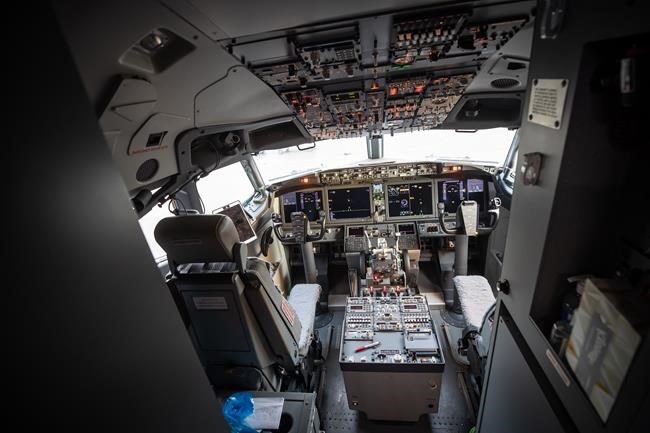MONTREAL — After being laid off from her job as a flight attendant for Air Transat in April, Jennifer Yurchuk, who has 29 years of experience on the job, found work as a courier for FedEx while living off of her savings until her airline calls her back to work, if it ever does.
“I used to go to Paris and have dinner," Yurchuk said. "Now I’m frizzy-haired, delivering these Aritzia packages."
One year after the federal government instituted its first COVID-19 related travel restrictions — which kicked off a precipitous drop in airline revenues — flight attendants like Yurchuk have borne the brunt of the economic pain, along with thousands of pilots, groundcrew and technicians in Canada.
Many of those workers have spent years perfecting a highly specialized skill or climbing to the top of their union’s seniority hierarchy, and now are wondering whether the best option for them is to jump ship altogether.
“I have to come up with something,” said Diane Edwards, who was laid off from her flight attendant job at Sky Regional Airlines Inc. this year. “There’s not a lot of jobs available right now, either. I might end up just taking whatever I can.”
Air Canada, the country’s largest carrier, lost nearly $4 billion in 2020, while the International Air Transport Association estimates the global losses for airlines at $118.5 billion in 2020. According to Statistics Canada, the operating revenue of the country's major carriers plummeted 68.4 per cent in 2020 to $8.0 billion from $25.3 billion in 2019. The government has promised an aid package for the sector, but airlines have been locked in negotiations with Ottawa for months without reaching a resolution.
The result has been mass layoffs for the industry's workforce as airlines cut routes and reduce service. Even with government aid, experts have warned that a full recovery for aviation could take years.
Edwards is one of the administrators of a Facebook page called “Aviation workers made redundant in Canada by the COVID-19 crisis." The group, which now has more than 13,000 members, is part support group, part organizing tool, and part jobs board, with people posting links from potential employers in case others are looking for work outside the industry.
Still, aviation workers who spoke to The Canadian Press were unsure if the specific skills they had learned throughout their careers would be valuable in a different industry, leaving them anxious about whether they could make as much money in another job.
"This has been my career," Edwards said. "I don't even know where I would start, because this is in my blood."
To help its members during the pandemic, Air Canada's pilots union has hired a third-party firm to provide "professional development and temporary job transition assistance," said Blake Murphy, acting chair of the Air Canada Pilots Association. As a result of an agreement, the number of furloughed pilots was limited to 600, while the remaining 3,000 are on reduced pay, Murphy said.
"Our association is very concerned about those 600 highly-skilled furloughed pilots whose livelihoods and careers suffer with each passing month they are not able to fly," Murphy said.
Canada already has one of the highest rates of skill underutilization among OECD nations, said Carlo Fanelli, a professor at York University who studies work and labour market restructuring. That problem that could grow if large numbers of highly skilled aviation workers are forced to find work elsewhere, Fanelli said.
An exodus of highly specialized workers to other sectors can create problems for overall demand in the economy, since those workers will not fully realize their earnings potential, Fanelli said.
“What keeps an economy going is the ability of lots of individuals to go out to dinner or buy an extra pair of jeans,” Fanelli said. “If people don’t have those funds available because their skills are being underutilized, this is going to create problems that will reverberate beyond the aviation industry.”
Wesley Lesosky, the president of the Air Canada Component of CUPE, which represents flight attendants, said the union is working to support its members during the pandemic, including finding new job placements and facilitating employment insurance sessions with Service Canada.
Even before the pandemic hit, stable jobs in the aviation industry had been increasingly hard to find, with airlines employing more part-time workers as market pressures force companies to cut costs, Fanelli said.
But the pandemic has exacerbated these pressures, prompting workers like Yurchuk to wonder whether the career and lifestyle that she enjoyed as a flight attendant could still be a viable way to make a living in a post-pandemic world.
"I’m losing a job that I loved," Yurchuk said. "It’s a bit more than a job. It’s more of a way of life."
This report by The Canadian Press was first published March 16, 2021.
Companies in this story: (TSX:AC)
Jon Victor, The Canadian Press



